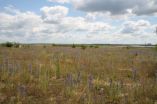(Press-News.org) Regulatory authorities should consider banning electronic cigarettes until safety concerns have been addressed, concludes research published online in Tobacco Control.
The researchers base their conclusions on an evaluation of six different brands of electronic nicotine delivery systems or ENDS. These are not tobacco products, but are designed to look and feel like regular cigarettes.
They are aimed at smokers for use in places where cigarette smoking is not permitted as they don't produce smoke. They usually consist of a battery, an atomiser, and a replaceable cartridge containing nicotine suspended in propylene glycol and water.
The e-cigarettes analysed in the study were bought from online vendors and assessed on design features; the accuracy and clarity of labelling; and the quality of instruction leaflets and associated printed material either supplied with the product or available on the manufacturer's website.
The basic design of all the products was similar, but the design features varied considerably, the evaluation showed.
Fluid containing nicotine readily leaked out of most cartridges, and it was difficult to put together or take apart the devices without getting nicotine over the user's hands.
Cartridge labelling was very poor, with most replacement packs lacking any indication of cartridge content, expiry date, or health warnings.
Cartridges claiming to have no nicotine content looked identical to those claiming to have high nicotine content and they were indistinguishable once removed from their packs and wrappers.
All brands were sold with "ambiguous amounts of nicotine," with levels varying from 6 mg to 24 mg, and it was not clear if this referred to the cartridge itself or the fluid suspension.
Internet orders were often filled incorrectly, with the wrong strength of nicotine or kits or cartridges supplied.
Disposal of used cartridges containing nicotine was not adequately covered in any of the websites or accompanying instruction leaflets.
Safety features did not always work correctly and print and internet material often contained information or made claims for which there is currently no scientific evidence, say the authors.
Examples of this included: "Be careful to avoid inhaling any significant quantity of fluid. Although it gives you a slight tingling sensation, it is not harmful." And: "Within two weeks your lung capacity will increase by 30%...Wrinkles in your skin will become less noticeable."
Their findings prompt the authors to conclude: "Our observations provide evidence that regulators should consider removing ENDS from the market until design features, quality control, labelling, disposal and safety issues have been adequately addressed."
INFORMATION: END
The gap in flu vaccination rates between elderly whites, African-Americans and Hispanics is amplified when vaccine supply is limited or delayed. That is the conclusion of a study out today in the American Journal of Preventive Medicine.
The study found that disparities in seasonal influenza vaccination rates between the groups grew by as much as 7 percentage points in years when there were problems with vaccine supply. By contrast, the gap narrowed by as much as 11 percentage points during years when the supply was more timely and abundant.
"There is a strong ...
Personality is not just a feature unique to humans and pets. Scientists at the University of Gothenburg (Sweden) have revealed that also brown trout have individual characters and show different personalities.
Researcher Bart Adriaenssens from the Department of Zoology at the University of Gothenburg has for many years studied the behaviour of juvenile trout from watercourses on the west coast of Sweden.
"My results show that it are not just humans and other mammals that exhibit personality. Also brown trout differ among each other in their level of aggression and react ...
Monthly blood transfusions combined with daily medication to remove the resulting excess iron remains the best approach for reducing the risk of recurrent strokes in young patients with sickle cell anemia, according to a preliminary analysis of a multicenter trial that includes St. Jude Children's Research Hospital.
The study compared the efficacy of two treatments for the potentially life-threatening problem of iron overload caused by chronic transfusion therapy. The transfusions are used to guard against additional strokes in young sickle cell anemia patients. The trial, ...
An international team of researchers led by the University of East Anglia (UEA) have developed a new kind of endoscope to aid the early detection and diagnosis of inflammatory bowel disease.
The Confocal Laser Endomicroscope (CLE) contains a powerful microscope which allows clinicians to view the bacteria that are thought to trigger diseases of the bowel such as Crohn's disease and ulcerative colitis.
"Bacteria within the wall of the gut are already believed to play an important role in the development of inflammatory bowel disease and we now have a powerful new tool ...
Quebec City, December 6, 2010—Researchers at Université Laval, in collaboration with Nova Scotia Agricultural College, have discovered what causes Christmas tree needles to drop off, and how to double the lifespan of Christmas trees in homes. The authors presented their findings in a recent issue of the scientific journal Trees.
The researchers have identified a plant hormone—ethylene—responsible for needle loss in balsam fir. They made the discovery by placing fir branches in containers of water inside a growth chamber. After ten days the branches began to produce ethylene ...
Brand named hotels fare better than independently operated properties in economic downturns, according to a team of international researchers.
A study of the performance of hotels during both economic recessions and expansions indicates that brand named hotels are more profitable than independent hotels under all economic conditions, but the difference is particularly significant during recessions, said John O'Neill, associate professor of hospitality management, Penn State.
"There has been a lot of debate in the hotel industry about the advantages of brand affiliation ...
CHAMPAIGN, Ill. — Good news for control freaks! New research confirms that having some authority over how one takes in new information significantly enhances one's ability to remember it. The study, in the journal Nature Neuroscience, also offers a first look at the network of brain structures that contribute to this phenomenon.
"Having active control over a learning situation is very powerful and we're beginning to understand why," said University of Illinois psychology and Beckman Institute professor Neal Cohen, who led the study with postdoctoral researcher Joel Voss. ...
COLLEGE STATION — A team of Texas AgriLife Research engineers has developed a way to cut by as much as half the amount of irradiation needed to kill 99.999 percent of salmonella, E. coli and other pathogens on fresh produce.
By packing produce in a Mylar bag filled with pure oxygen, Dr. Carmen Gomes, AgriLife Research food safety engineer, and her colleagues found they could significantly reduce the amount of radiation needed to kill those pathogens. Reducing the amount of radiation is not so much a safety measure as it is a way to preserve quality of the produce, she ...
PITTSBURGH—Computer-related technology is increasingly driving the U.S. economy, yet computer science education is scant in most American elementary and secondary school classrooms and the number of introductory and Advanced Placement courses in computer science has actually declined in the last five years, according to a report released this fall.
"Some states and some schools are offering some really excellent courses," said Mark Stehlik, co-author of the report, "Running on Empty: The Failure to Teach K-12 Computer Science in the Digital Age," http://www.acm.org/runningonempty/. ...
How do ecosystems develop? No one really knows, yet. There is however one project, unique in the world, seeking to answer this question. In a former open-pit coal mining area in Brandenburg, Germany, a surface of six hectares was partitioned off and then left to its own resources. Scientists from the Technische Universitaet Muenchen (TUM), in collaboration with researchers from other institutions, are studying the development of soil, flora, and fauna there. With this research they aim to establish the factors that have a particularly strong influence on developing ecosystems.
Young ...



